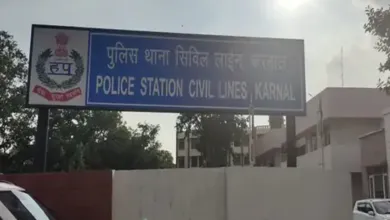West Bengal Tablet Scam: Rs.20 Crore Siphoned Through 1000 Hired Bank Accounts, 27 People Arrested

Kolkata: Investigations have revealed that fraudsters used more than 1,000 bank accounts to divert funds from the West Bengal government’s financial assistance program meant for higher secondary students to purchase tablets. Police sources confirmed that 1,190 accounts have been seized, and legal proceedings are underway to recover the misappropriated funds for the state exchequer. So far, 27 individuals have been arrested in connection with the scam. The West Bengal government had launched this free tablet scheme to provide free tablets to students.
The Scam and Its Impact
The scam centers around the fraudulent diversion of funds from the West Bengal government’s student aid program meant to help higher secondary students purchase tablets. Fraudsters exploited systemic vulnerabilities by rerouting government-allocated funds into over 1,000 rented bank accounts instead of the accounts of legitimate student beneficiaries. The magnitude of the scam is significant, with 1,190 accounts identified and frozen to prevent further misuse, and recovery efforts for the misappropriated funds are underway.
How the Fraud Was Executed
The scheme involved multiple layers of deception:
- Rented Accounts: Fraudsters hired individuals or groups to lend their bank accounts for a fee.
- Diversion of Funds: The funds intended for students were redirected to these hired accounts, cutting off genuine beneficiaries from their due aid.
- Fake Documents and Trust-Building: Fraudsters likely used falsified credentials and gained the trust of those involved in processing these funds to orchestrate the scam.
Origins and Link to Jamtara-Style Scams
The investigation traced the cyber-forgery network to Chopra in North Dinajpur. The operation displayed similarities to the notorious Jamtara gang from Jharkhand, which is infamous for large-scale phishing scams. The methods used, such as using fake accounts and exploiting systemic loopholes, are hallmarks of Jamtara-style cybercrimes.
Jamtara’s reputation as the “phishing capital of India” highlights its prominence in similar scams, making this comparison alarming for authorities.
Chief Minister’s Allegations
Chief Minister Mamata Banerjee raised concerns about political involvement, suggesting that some political entities may be protecting the fraudsters. She emphasized the need to monitor places like guest houses and malls where such criminals might operate.
Implications for Other Welfare Programs
This scam prompted heightened vigilance for other welfare schemes like the Kanyashree project, which supports girl students with monthly financial aid. A potential security breach on the Kanyashree portal flagged by the NIC has added to concerns, prompting immediate security upgrades.
Preventive Measures and Response
The state government and relevant departments have initiated several measures to prevent future incidents:
- Six-Point Initiative: This includes stricter vetting of accounts, enhanced cybersecurity measures, and increased transparency in fund disbursement.
- District Oversight: District authorities have been directed to thoroughly monitor the disbursement process for welfare schemes.
- Legal Action: With 27 arrests so far, the authorities are pursuing legal proceedings against the perpetrators.
Broader Implications
This scam highlights a significant challenge for public welfare programs reliant on digital systems. It underscores the urgent need for robust cybersecurity measures, better account verification processes, and strict monitoring to prevent such incidents.
By addressing these vulnerabilities, the state aims to restore trust in its welfare schemes and ensure that aid reaches the intended beneficiaries.

